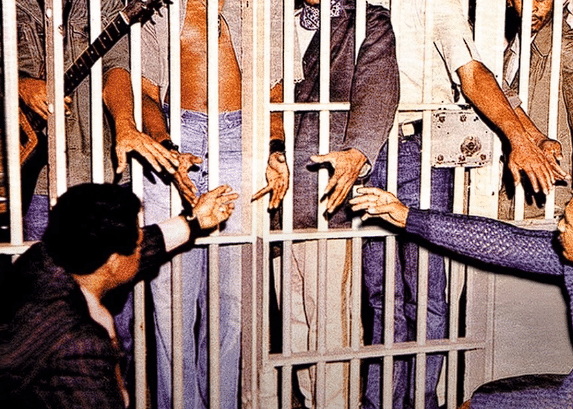Prisons are often associated with the deprivation of freedom, some individuals have defied the odds and created albums within the confines of their jail cells. These records possess a compelling backstory, showcasing the resilience and talent of incarcerated musicians. This list features notable albums that were entirely recorded in prison, offering a glimpse into the creativity and artistry that can emerge from unexpected places.
While some albums recorded in prison feature established musicians who found themselves incarcerated, this list focuses on albums created by inmates who discovered their musical talents while behind bars. These records provide a glimpse into the lives of individuals convicted for various crimes, ranging from murder to armed robbery, who found solace, expression, and creativity through music.
“Dauði Baldrs” – Burzum
Varg Vikernes, known for his involvement in the Norwegian black metal band Mayhem, fatally stabbed guitarist Euronymous in 1993. Prior to this incident, Vikernes had begun his solo project, Burzum, which became influential within the black metal scene. However, his acts of murder and arson, including setting fire to three churches, resulted in his imprisonment from 1994 to 2009.
While incarcerated, Vikernes continued making music using limited instruments, such as a synthesizer. The ambient albums he produced during this time, including “Dauði Baldrs” and “Hliðskjálf,” reflect his creative expression within the confines of his cell.
“Those Prison Blues” – Robert Pete Williams
After claiming self-defense in a shooting incident in 1956, Robert Pete Williams received a life sentence in the Louisiana State Penitentiary. However, his time in prison unveiled his exceptional talent as a blues musician, which caught the attention of ethnomusicologists Dr. Harry Oster and Richard Allen. In 1959, Oster recorded Williams performing songs that often depicted life behind bars.
The debut album, titled “Those Prison Blues,” was released in the same year and later reissued in 1971. Thanks to Oster’s efforts, Williams’ sentence was eventually reduced, leading to his release from jail. He continued to pursue his musical career, achieving notable milestones such as performing at the Newport Folk Festival in 1964. Williams’ legacy was cemented when he was posthumously inducted into the Blues Hall of Fame in 2014, 34 years after his passing.
“Lucifer Rising” – Bobby Beausoleil
Bobby Beausoleil, an associate of Charles Manson, was sentenced to life imprisonment in 1970 after being convicted of stabbing and killing Gary Hinman the previous year. Prior to his incarceration, Beausoleil was already an active musician, having performed with his band, The Orkustra. His musical abilities caught the attention of experimental filmmaker Kenneth Anger.
When Anger sought a score for his film “Lucifer Rising,” Beausoleil convinced him of his suitability for the task. Although the original plan involved hiring Jimmy Page, disagreements led to his departure. Beausoleil agreed to complete the soundtrack in prison and enlisted his fellow inmates (The Freedom Orchestra) to record “Lucifer Rising.” Anger provided $3,000 for the instruments required to complete the recording.
“Eyes of Love” – The Edge of Daybreak
During the late 1970s, a collective of musicians emerged within the confines of Powhatan Correctional Center and formed a funk/soul group called The Edge of Daybreak. Among its members was McEvoy Robinson, who had previously collaborated with renowned artists like Otis Redding. After hearing the band’s captivating performances, a friend of James Carrington, one of the members, suggested the idea of recording an album, prompting The Edge of Daybreak to embark on this ambitious endeavor.
Their album, titled “Eyes of Love,” was released in 1979 and recorded in a remarkable manner — the entire album was captured in a single take during a marathon five-hour session. Although the album did not gain significant attention upon its initial release, with only 1,000 copies available, it experienced a renaissance in 2015 when it was reissued by Numero Group. This reintroduction allowed “Eyes of Love” to reach a wider audience and find appreciation among music enthusiasts.
“All We Need Is Another Chance” – The Escorts
In the late 1960s, Reginald Prophet Haynes, an inmate, began singing doo-wop to pass the time in prison. With the collaboration of several fellow inmates, Haynes formed a singing group called The Escorts. After being transferred from Trenton State Prison to Rahway State Prison, The Escorts released their debut album, “All We Need Is Another Chance,” in 1973.
Motown producer George Kerr recognized the group’s talent after witnessing their performance at a prison talent show. Kerr facilitated the recording of the album by bringing recording equipment into the prison. The Escorts’ debut has since garnered attention and even been sampled by legendary artists like J Dilla.

